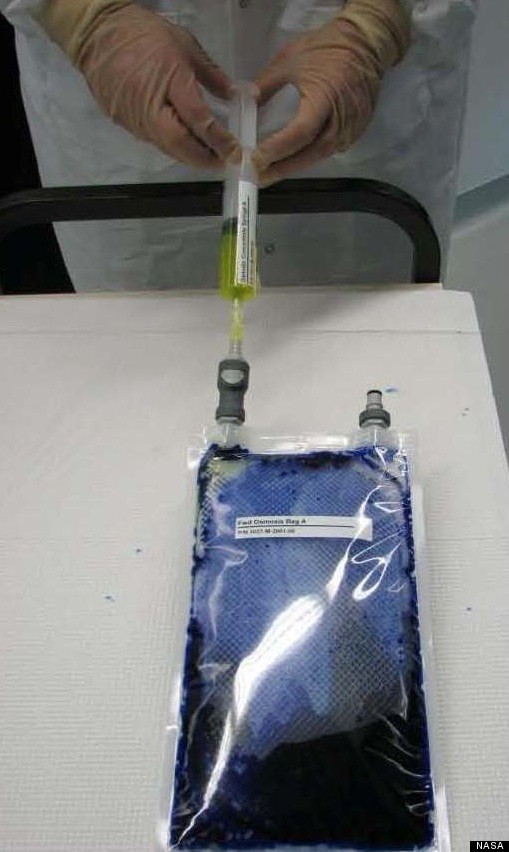
Nope, it's not Tang.
One of the NASA astronauts on board Space Shuttle Atlantis, which launched Friday, will test a new urine recycling system that may be implemented on the International Space Station in the future.
This "Forward Osmosis Bag" (FOB) system is a portable drinking pouch that converts human wastewater into consumable water by filtering toxins through a semi-permeable membrane and a concentrated sugar solution.
While the urine recycling machine on board the International Space Station must draw power from the craft in order to run, this baggie system will not.
"This could be a first step toward recapturing the humidity from our sweat, from our breath, even from our urine, and recycling it and making it drinkable," said NASA project scientist and experiment leader Howard Levine, according to Wired.
Here's how it works: wastewater fills the bag and passively transfers through an inner layer, which contains the sugar solution; toxins are left behind as the liquid passes from the outer layer to the inner and the wastewater becomes safe to drink. However, Wired notes, the system hasn't been perfected yet, and certain toxins can still get through the filters. These toxins can build up in the kidneys over time, making the FOB practical only for short journeys.
The Atlantis astronaut who will test the filtration system won't be using wastewater, though, and will instead use a "potassium-rich solution" to test the baggie during the shuttle's 12-day mission at the International Space Station.
Check out a photo of the Forward Osmosis Bag (below).
LOOK: [via NASA]
